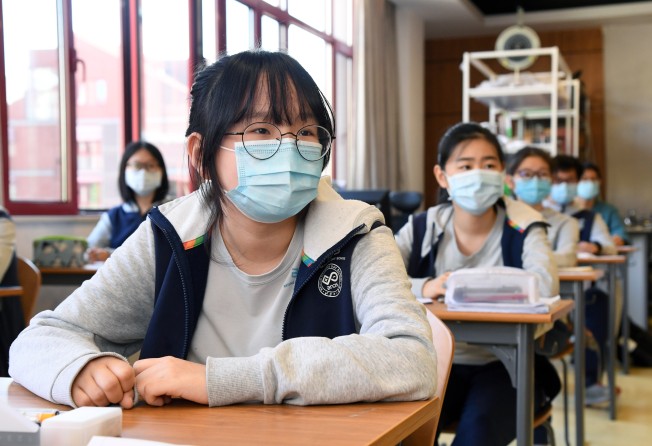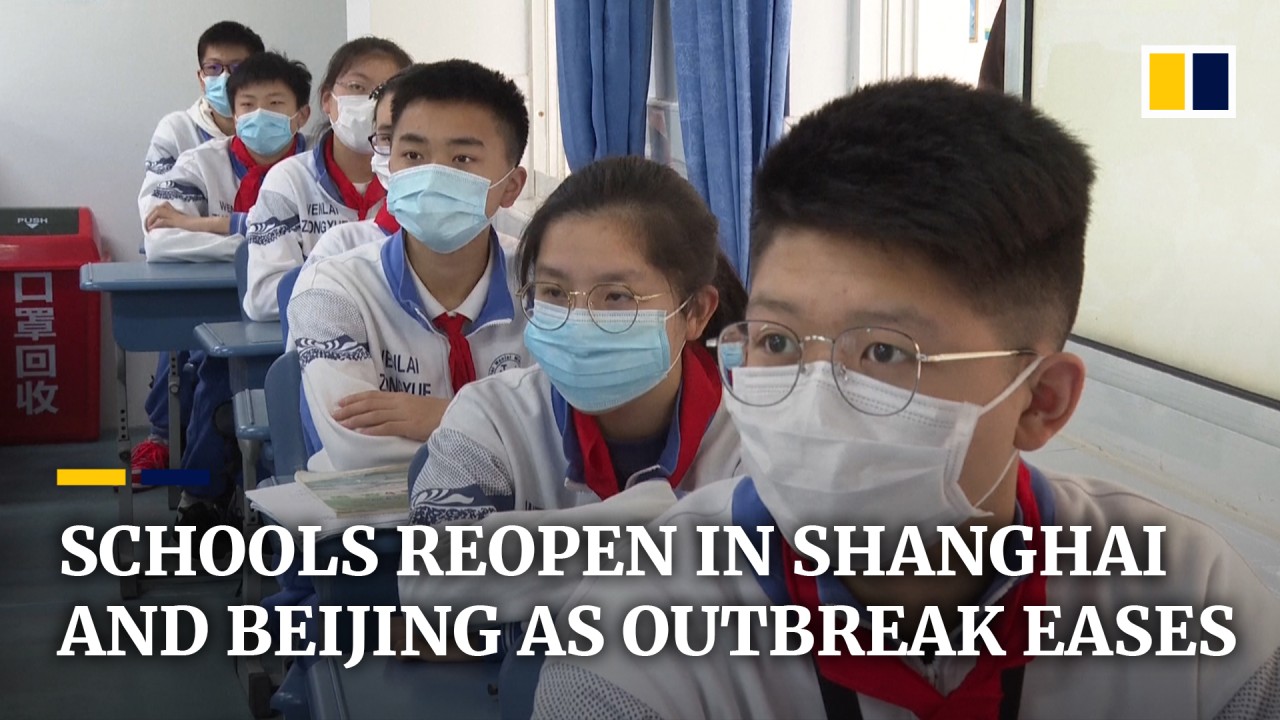China bans teachers from pushing young children to learn ahead of curriculum
- Ministry of Education issues detailed instructions on age-appropriate learning in subjects including maths, languages and science
- But pressure remains on Chinese young people to get ahead early for success in all-important college entrance exam

China’s education ministry has renewed its push to reduce the academic burden on the country’s schoolchildren as they return to class after the coronavirus lockdown.
Primary and middle schools have been issued with a detailed list of what not to teach, in the latest effort to stop the widespread practice of getting young children ahead of the curriculum in the hope of giving them a head start in the all-important National Higher Education Entrance Examination, or gaokao.
Education in China is extremely competitive, especially in the major cities, and it is common for children to be pushed to learn beyond their age group to improve their chances of getting into a top school. The annual gaokao has long been viewed as the one thing that can make or break someone’s future, particularly for the less privileged.
The latest ruling bans teachers from increasing the difficulty of their classes and teaching ahead of the government-designed syllabus. The list, which was issued on the weekend, specifically mentions teaching grade 1 and 2 children – aged six and seven – phonetics and requiring them to write English words.
The list also bans schools and after-school training institutions from teaching the addition and subtraction of numbers with four or more digits to children below grade 4. Other restrictions cover the teaching of Chinese, physics, biology and chemistry until the appropriate level of schooling.
The move is the latest in a decade-long government effort to reform the higher education enrolment system. The 10-year plan, issued by the central government in 2010, aimed to reduce the importance placed on the gaokao and assess young people’s abilities beyond their academic performance.
Chu Zhaohui, a researcher with the National Institute of Education Sciences, said that, despite the government’s efforts to ease the academic burden on schoolchildren, reality was going in the opposite direction.
“We vowed to stop letting one exam decide the entire course of a person’s life 10 years ago in a national educational reform plan, but today it is still the case. People are still crazy about getting into top schools and going to extracurricular classes,” Chu said. “The key to easing the academic burden is to improve the way we evaluate students.”
Lin Lihong, mother of a grade 2 student in Shanghai, said her son attended five different after-school courses every week, costing a total of more than 1,500 yuan (US$211). “The point of attending such classes is to learn in advance, so that he can run faster than others, to defeat them in competition,” she said.
“I don’t think their academic burden will be eased as long as students are evaluated by examination results. You have to study hard to win better grades, so I don’t think this new policy will truly reduce the academic burden.”

